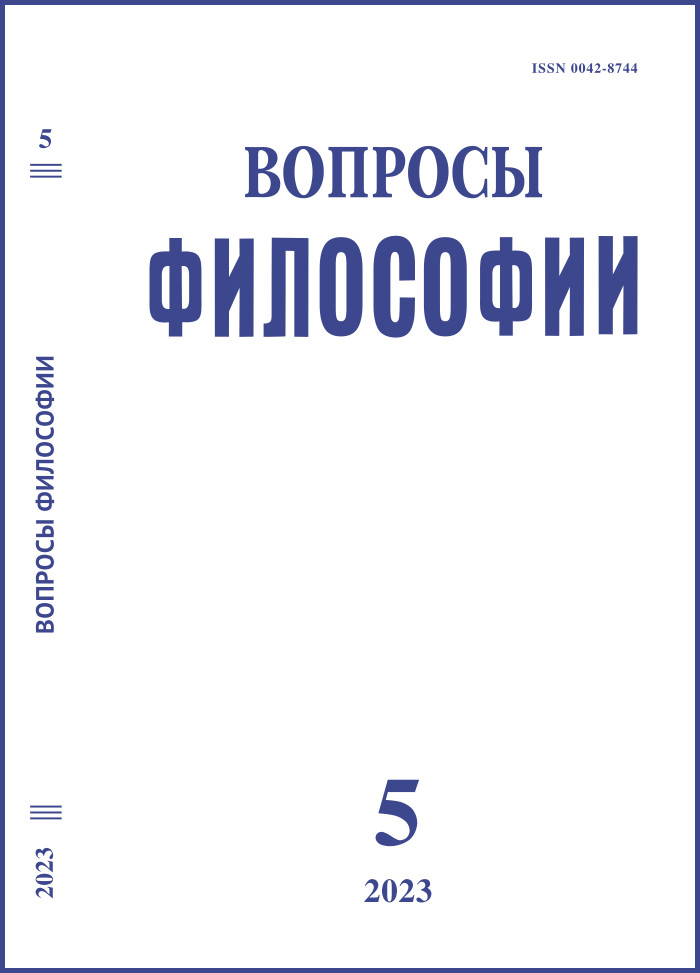Contemporary Theories of Tradition: The Unity of Discourse and the Variety of Meanings
DOI:
https://doi.org/10.21146/0042-8744-2023-5-171-181Keywords:
Cartesian subject, rationality, originality, reproduction, individuality, variability.Abstract
The article considers the problem of unity and variety of the contemporary
theories of tradition that appear in different fields of scholarship. It is argued that the unity of these theories is mainly a discursive one. This theoretical discourse, which starts with the famous essays of T.S. Eliot, M. Oakeshott, and K. Popper, ascribes to the tradition rationality, flexibility, the active participation of the individual in the functioning of tradition and non-authoritative character. The concept of ‘invented tradition’, which describes tradition as rigid and unchangeable, presupposes its deliberative and rational character. The theories are more or less unanimously challenge the opposition between tradition and rationality. At the same time the term ‘tradition’ possesses various meanings and functions not only in different theories, but also within a single
theory. The unity of the problems and ‘puzzles’ that the concept of tradition should solve is weak and is getting weaker. The article puts forward a hypothesis that the discourse about tradition reflects the situation, in which the epistemological paradigm of Cartesian subject is felt to be insecure. The methodological reflection grows, but still cannot change the model, because it mere ascribes to the tradition the qualities of its opposite, and mere leads to the blurring of the concept of tradition.

